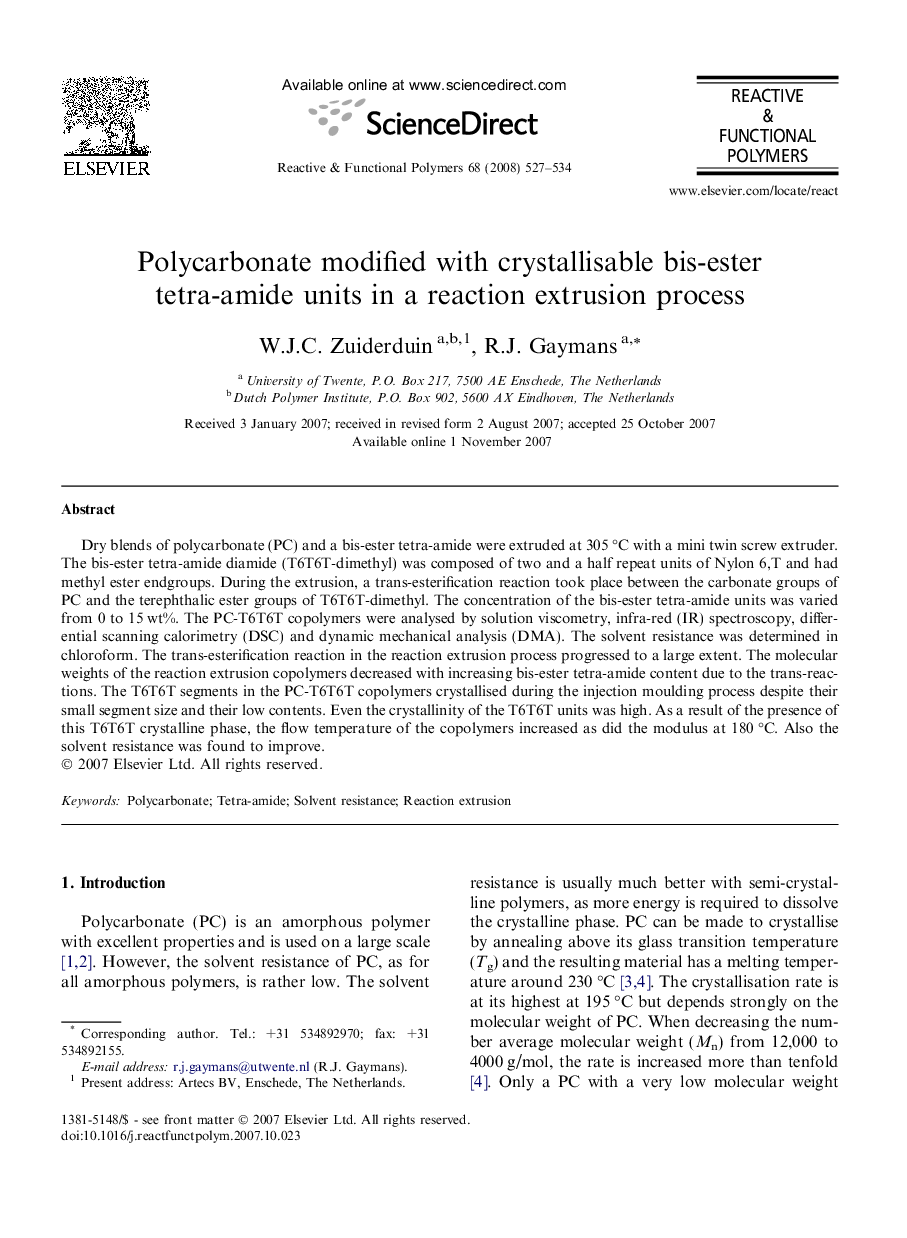| Article ID | Journal | Published Year | Pages | File Type |
|---|---|---|---|---|
| 5211029 | Reactive and Functional Polymers | 2008 | 8 Pages |
Dry blends of polycarbonate (PC) and a bis-ester tetra-amide were extruded at 305 °C with a mini twin screw extruder. The bis-ester tetra-amide diamide (T6T6T-dimethyl) was composed of two and a half repeat units of Nylon 6,T and had methyl ester endgroups. During the extrusion, a trans-esterification reaction took place between the carbonate groups of PC and the terephthalic ester groups of T6T6T-dimethyl. The concentration of the bis-ester tetra-amide units was varied from 0 to 15 wt%. The PC-T6T6T copolymers were analysed by solution viscometry, infra-red (IR) spectroscopy, differential scanning calorimetry (DSC) and dynamic mechanical analysis (DMA). The solvent resistance was determined in chloroform. The trans-esterification reaction in the reaction extrusion process progressed to a large extent. The molecular weights of the reaction extrusion copolymers decreased with increasing bis-ester tetra-amide content due to the trans-reactions. The T6T6T segments in the PC-T6T6T copolymers crystallised during the injection moulding process despite their small segment size and their low contents. Even the crystallinity of the T6T6T units was high. As a result of the presence of this T6T6T crystalline phase, the flow temperature of the copolymers increased as did the modulus at 180 °C. Also the solvent resistance was found to improve.
